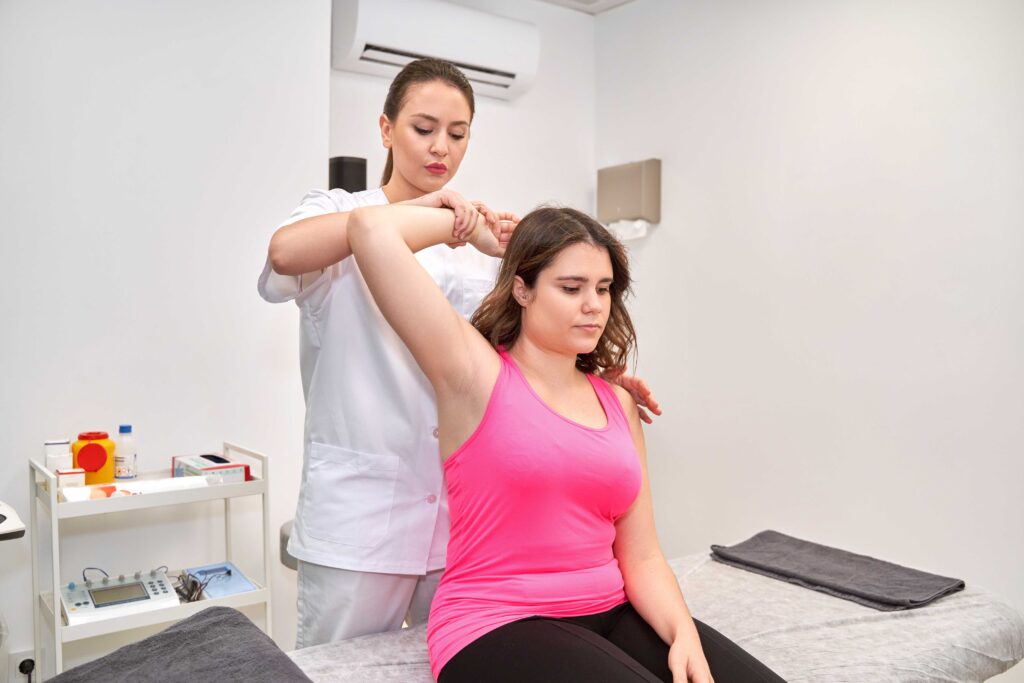Addiction is a complex and challenging condition that affects individuals from all walks of life. It can have a profound impact on their physical health, mental well-being, relationships, and overall quality of life. Fortunately, there is hope for recovery, and seeking professional help is a crucial step towards a brighter future. In this blog post, we will delve into the world of addiction recovery and explore various therapeutic modalities that can aid individuals on their journey to breaking free from addiction.
Cognitive Behavioral Therapy (CBT) is a widely recognized and effective approach to addiction recovery. It focuses on identifying and changing negative thought patterns and behaviors that contribute to addiction. Through a collaborative process between therapist and client, CBT equips individuals with essential coping skills, helps them challenge distorted beliefs, and assists in developing healthier habits and behaviors. CBT can also address co-occurring mental health conditions, such as anxiety or depression, which often accompany addiction.
Twelve-Step programs, such as Alcoholics Anonymous (AA) and Narcotics Anonymous (NA), have been instrumental in supporting addiction recovery for decades. These programs provide a structured framework for individuals to connect with a supportive community, find guidance from those who have walked a similar path, and work through a series of steps aimed at personal growth, self-reflection, and spirituality. The peer support and accountability offered in Twelve-Step programs can be particularly beneficial in maintaining long-term sobriety.
Motivational Interviewing is a person-centered approach that focuses on enhancing an individual’s motivation and commitment to change. It involves empathetic listening, collaboration, and guiding individuals towards finding their own intrinsic motivation for recovery. Motivational Interviewing can help individuals explore their ambivalence, build self-confidence, and strengthen their commitment to making positive changes. It is especially effective in the early stages of addiction recovery when individuals may be unsure about seeking treatment.
Mindfulness and meditation practices have gained recognition for their positive impact on mental health and well-being. In addiction recovery, these practices offer a valuable tool for managing cravings, reducing stress, and cultivating self-awareness. By staying present in the moment and developing a non-judgmental attitude, individuals can better navigate the challenges of recovery and foster a greater sense of inner peace. Mindfulness-based relapse prevention programs integrate mindfulness practices with cognitive-behavioral techniques to help individuals prevent relapse and sustain recovery.
Art Therapy provides a creative outlet for individuals in addiction recovery to express themselves and process their emotions. Through various art forms, such as painting, drawing, or sculpting, individuals can tap into their subconscious, explore their inner world, and address underlying issues contributing to their addiction. Art Therapy can be a transformative modality that promotes self-discovery, healing, and personal growth. It encourages individuals to access their innate creativity and provides alternative means of communication and self-expression.
Physical activity, including yoga and exercise, plays a crucial role in addiction recovery. Regular exercise releases endorphins, promotes a sense of well-being, and reduces stress and anxiety. Yoga, in particular, combines physical movement with breathwork and mindfulness, helping individuals develop a mind-body connection and cultivate resilience. Incorporating yoga and exercise into a comprehensive recovery plan can enhance overall well-being and support a healthy lifestyle. Additionally, yoga practices like Yin Yoga and Restorative Yoga can help individuals find relaxation and balance in their recovery journey.

Dialectical Behavior Therapy (DBT) is a treatment approach initially developed to help individuals with borderline personality disorder but has also shown promise in addiction recovery. DBT combines elements of cognitive-behavioral therapy with mindfulness techniques. It emphasizes building skills in emotion regulation, distress tolerance, interpersonal effectiveness, and self-management. By developing these skills, individuals can better cope with triggers, regulate their emotions, and improve their overall well-being.
Eye Movement Desensitization and Reprocessing (EMDR) is a therapeutic modality primarily used to treat trauma-related disorders. However, it has also shown effectiveness in addiction recovery. EMDR involves engaging in bilateral stimulation, such as guided eye movements, while recalling distressing memories or experiences. This process helps individuals reprocess traumatic events, reduce associated emotional distress, and promote healing. By addressing underlying trauma, individuals can find greater resilience and reduce the risk of relapse.
Adventure Therapy integrates outdoor activities, such as hiking, rock climbing, or wilderness exploration, into the therapeutic process. It offers individuals opportunities to challenge themselves, build self-esteem, and develop problem-solving skills in a supportive and adventurous environment. Adventure Therapy promotes personal growth, enhances self-confidence, and facilitates the development of healthy coping strategies. By engaging in outdoor activities and stepping outside their comfort zones, individuals can experience transformative moments and discover their inner strengths.
Recovering from addiction is a courageous journey that requires individualized support and a comprehensive approach. By exploring different therapeutic modalities, individuals can access a range of tools and strategies to aid them on their path to recovery. Whether through traditional approaches like CBT and Twelve-Step programs, holistic approaches like mindfulness and art therapy, or emerging approaches like DBT and EMDR, there are numerous options available to support individuals in their quest for a life free from addiction. Remember, reaching out for help is the first step towards a brighter future, and with the right therapeutic modality, breaking free from addiction is possible. Don’t forget to contact us here at A New Crossroad for more information.
Exploring different therapeutic modalities allows individuals to access a variety of approaches tailored to their unique needs and preferences. Not every approach works for everyone, so having options increases the chances of finding a modality that resonates and supports long-term recovery.
Therapeutic modalities can be used independently or in combination with other treatments. The best approach depends on the individual’s specific circumstances, the severity of their addiction, and any co-occurring mental health conditions. It is essential to work with professionals who can assess and guide the treatment plan.
CBT helps individuals identify and change negative thought patterns and behaviors that contribute to addiction. It equips them with coping skills and healthier habits. Twelve-Step programs provide a supportive community, guidance, and a structured framework for personal growth, self-reflection, and spirituality.
Mindfulness and meditation practices promote self-awareness, stress reduction, and craving management. They help individuals stay present in the moment, develop a non-judgmental attitude, and cultivate inner peace. Mindfulness-based relapse prevention programs integrate these practices with cognitive-behavioral techniques to support long-term recovery.
Art therapy provides a creative outlet for self-expression and emotional processing. It helps individuals explore their inner world, address underlying issues, and foster personal growth. Through different art forms, individuals can access their creativity and communicate in ways that words alone may not capture.
Physical activity, including yoga and exercise, releases endorphins, reduces stress, and promotes overall well-being. Yoga combines movement, breathwork, and mindfulness, helping individuals develop a mind-body connection and resilience. Incorporating yoga and exercise into a recovery plan supports a healthy lifestyle and enhances overall well-being.
DBT focuses on emotion regulation, distress tolerance, interpersonal effectiveness, and self-management. It helps individuals cope with triggers, regulate emotions, and improve well-being. EMDR helps address underlying trauma, reduce emotional distress, and promote healing, reducing the risk of relapse.
Adventure therapy integrates outdoor activities into the therapeutic process. It provides opportunities for personal growth, self-esteem building, and the development of problem-solving skills. Engaging in outdoor activities and stepping outside comfort zones can lead to transformative moments and the discovery of inner strengths.

Visit Us
Open At
Copyright 2025 ©A New Crossroad